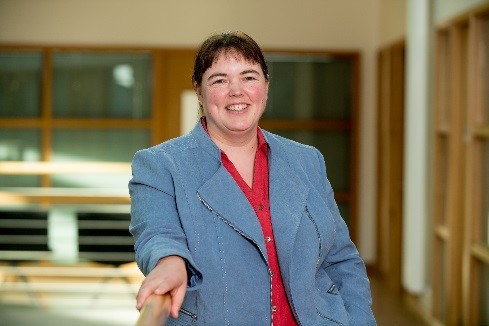November 2020
NICOLA secures prestigious funding to investigate how social circumstances and adversity impact health outcomes in later life

Researchers from the NICOLA Biomarker Research Group at the Centre for Public Health, Queen’s University Belfast, in collaboration with international research partners, have secured a highly competitive US-Ireland R&D Partnership Programme Award worth ~£.3.6 million to investigate how social circumstances and life adversity impacts the epigenome and our health outcomes as we age.
The epigenome represents the link between our inherited genes and our environment; this epigenome may help determine the rate at which we biologically age. Epigenetic changes are considered one of the hallmarks of ageing and have been shown to be affected by lifestyle and other environmental factors, such as where we live, that speed up the ageing process.
In recent years, investigators have developed epigenetic clocks to provide a measure of our ‘biological’ age as opposed to our chronological age. This project will advance science by exploring how life circumstances in both childhood and adulthood affect epigenetic change and how different historical and life-course events influences the rate at which we age using large nationally representative datasets. The project will also examine whether epigenetic changes are a cause or a consequence of ageing, and whether they can be used to predict early declines in health.
This unique partnership will examine social, economic, health and epigenetic data from three national studies of ageing in the family of Health and Retirement studies - the Northern Ireland COhort for the Longitudinal study of Ageing (NICOLA), the US Health and Retirement Study (HRS), and the Irish Longitudinal Study of Ageing (TILDA). The award will strengthen international research to examine how social circumstances and life challenges impact the epigenome and health in later years. The research is locally supported by the Northern Ireland Health and Social Care (HSC) Research & Development Division, Public Health Agency and the Medical Research Council.
This project is particularly important for NICOLA, which was launched in 2014 as Northern Ireland’s largest public health study.
Professor Amy Jayne McKnight, Professor of Molecular Epidemiology and Public Health at the Centre for Public Health at Queen’s and lead investigator on the research project, said: “This research will help us to better understand today for a healthier tomorrow. It will robustly identify new links between people’s experiences throughout their lives and subsequent health outcomes in adults aged over 50 years. This is important as the biological markers that we identify may then be used to promote and maximise healthy ageing.
This project provides an opportunity for NICOLA to harmonise data with our international colleagues and generate new molecular data that will provide a useful legacy for many other NICOLA-based research projects downstream. The information gathered during the study will be vital in informing Government policy and ensuring that Northern Ireland is well equipped to meet the challenges of an ageing population.”
Professor Ian Young, Chief Scientific Advisor to the Department of Health in Northern Ireland and Director of Health and Social Care (HSC) Research & Development Division, Public Health Agency said: “The US Ireland Research & Development Programme is important to HSC as it enables international collaboration across Ireland and the US, producing world leading science and strengthening the global community to advance the health of our population. This project will help to ensure that the best evidence on healthy ageing is available to guide the advice which we provide for our population, and confirms that Northern Ireland researchers are at the forefront of international work in ageing research.”
This trans-national project will involve researchers at Queen’s University Belfast working alongside colleagues at the University of Michigan, the University of Southern California, the University of Minnesota, the University of California Los Angeles, Yale University, and Trinity College Dublin.
Grant ref numbers: NIH reference R01AG068937, HSC R&D file reference number STL/5569/19, MRC Grant reference number MC_PC_20026
Professor Amy Jayne McKnight
Media


